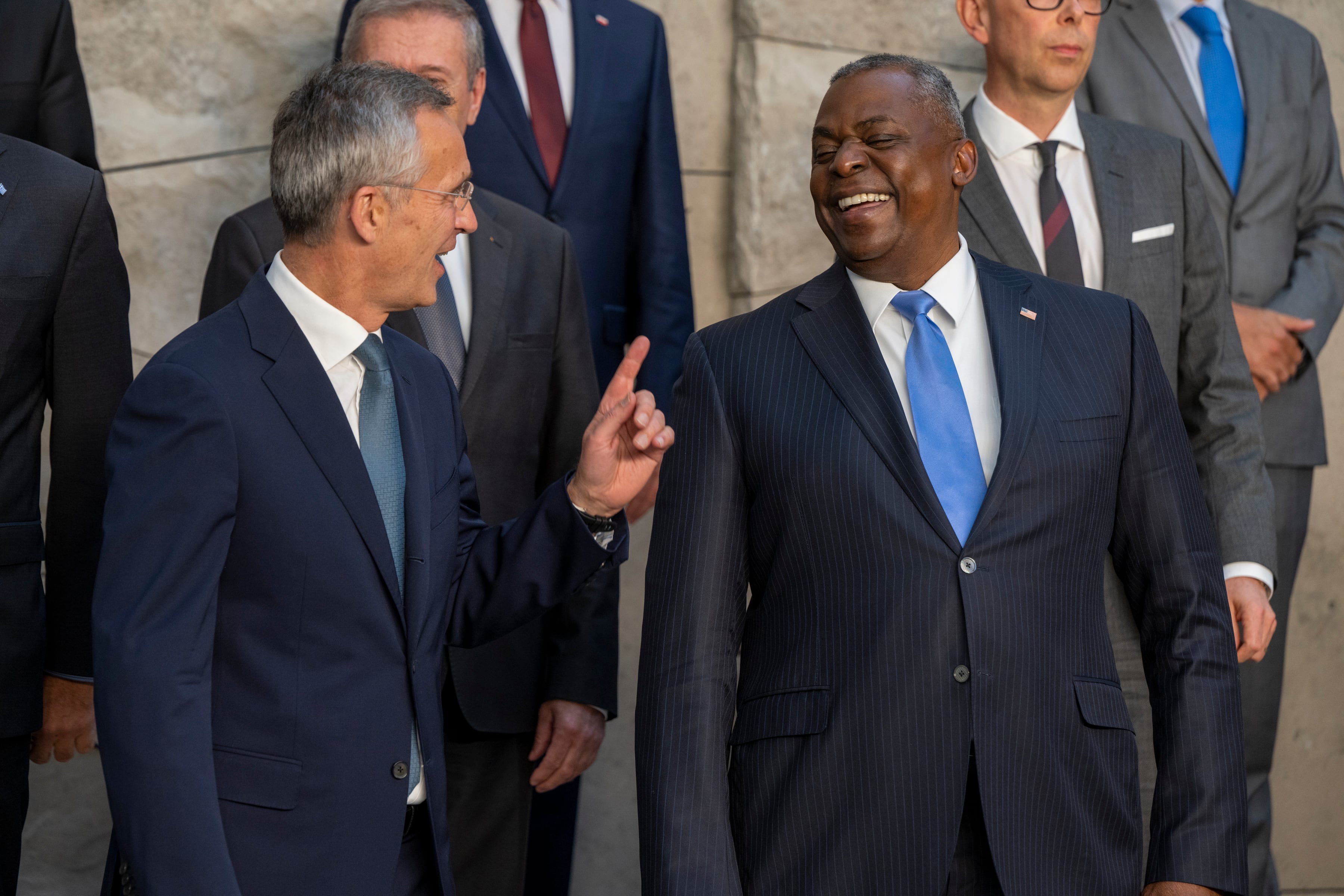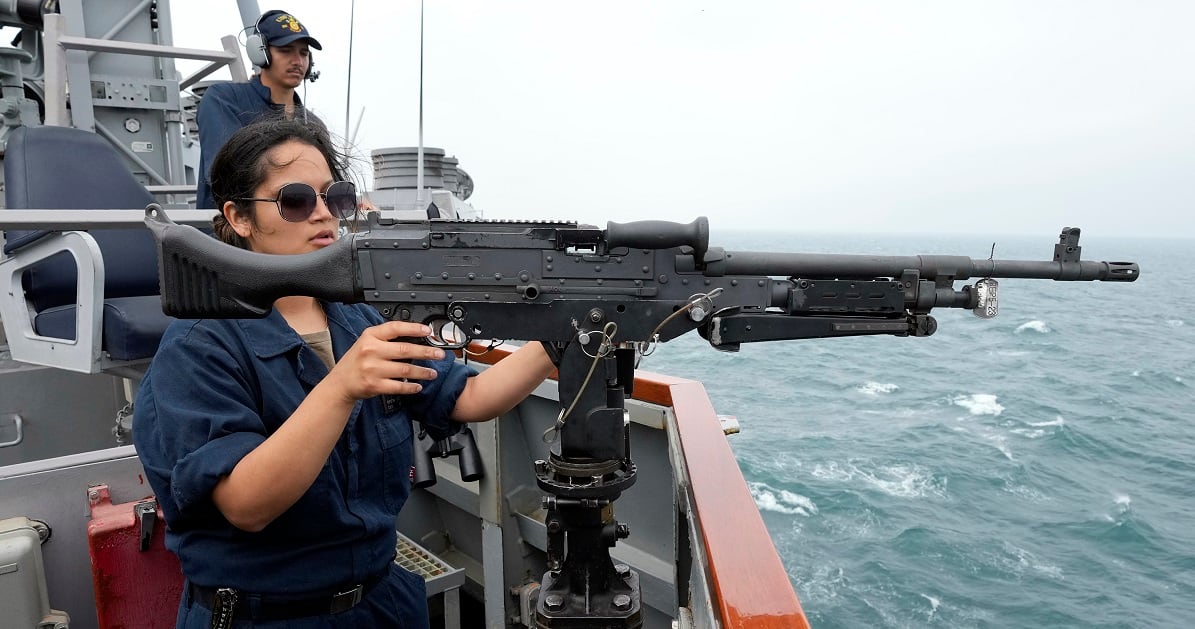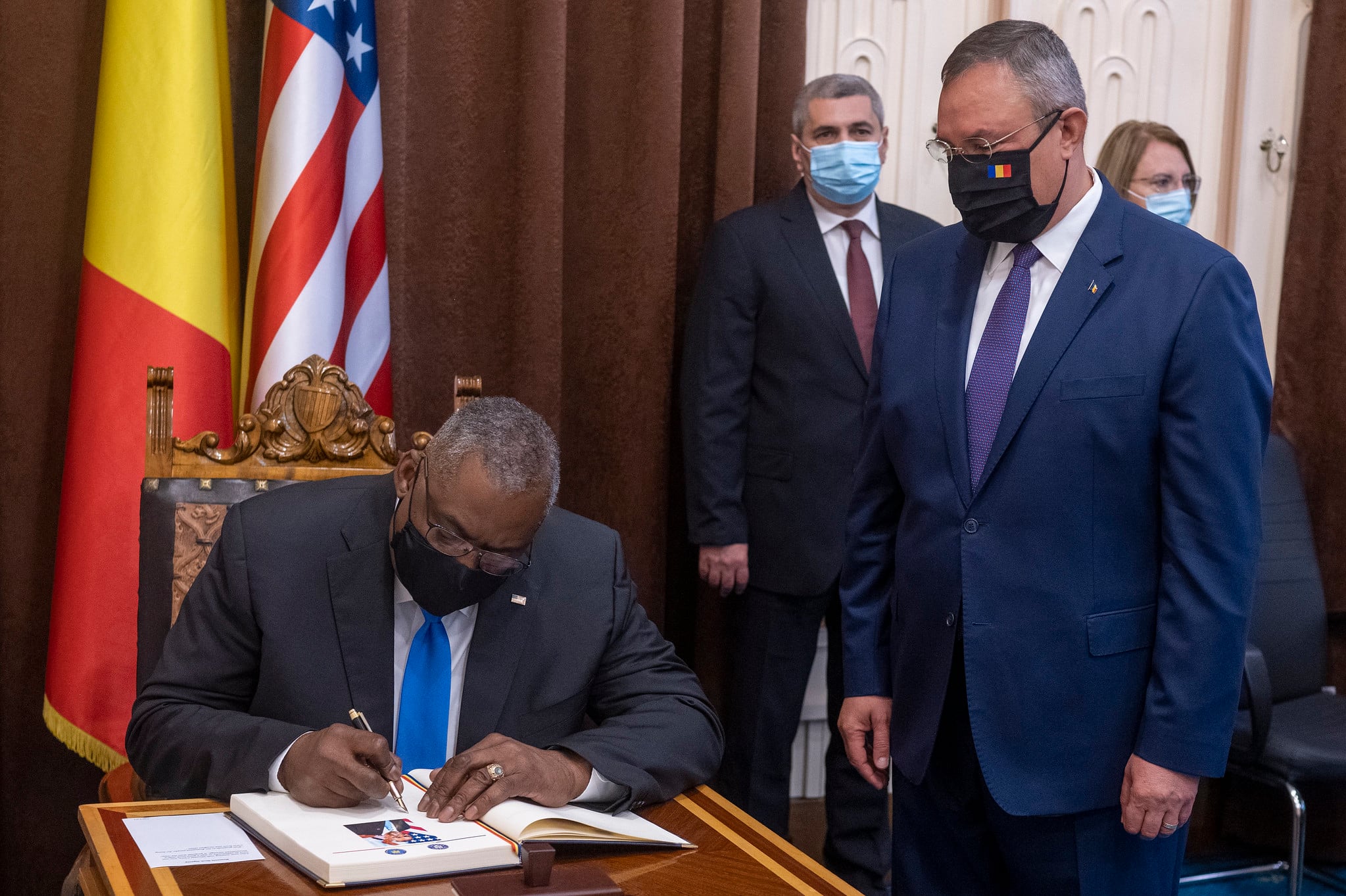WASHINGTON ― Ukraine and Romania want Western allies to step up their military presence in the Black Sea as they accuse Russia of militarizing the region, according to letters obtained by Defense News.
Their overlapping warnings — that Russia’s aggression and deployments of missile systems in Crimea threaten allies more broadly — came in dispatches from each country’s ambassador to the U.S. Senate’s Europe and Regional Security Cooperation subcommittee ahead of its Black Sea hearing last week.
“Russia has established the large anti-access/area-denial (A2AD) exclusion zone on [the Black Sea]‚” Ukraine’s envoy, Oksana Markarova, wrote in her Oct. 29 letter, adding that Moscow uses the area as a springboard for its Syria operations. “The NATO’s ability to defend its member-states and provide possible assistance to the third countries (Ukraine and Georgia) has been severely undermined.”
“Growing militarization of the Crimean peninsula endangers not only the littoral Black Sea States, but also [the] much wider region,” the ambassador wrote, adding that NATO should elaborate on joint response plans in the event Russia undertakes an armed attack on the Black Sea.
Last month, U.S. Defense Secretary Lloyd Austin visited NATO ally Romania and alliance aspirants Ukraine and Georgia as part of a tour to reassure the allies and to urge them to cooperate on the Black Sea. During the trip, which ended at NATO’s Brussels headquarters, neither Austin nor NATO Secretary General Jens Stoltenberg unveiled plans for any force increases on the Black Sea.
“There is no change to our operational capability or deterrence posture,” Pentagon spokesman Lt. Col. Anton Semelroth said Thursday. “We operate in the Black Sea and many other areas across the entire region on a regular basis, which is all part of our ongoing commitment and reassurance to our NATO allies and partners.”
RELATED

The conversation comes as tension between Moscow and the West sunk to post-Cold War lows after Russia’s 2014 annexation of Ukraine’s Crimean Peninsula, its support for a separatist insurgency in eastern Ukraine and other irritants.
Along with its ongoing economic and diplomatic efforts, Romania said it is already spending $3 billion to expand its Mihail Kogălniceanu Air Base ninefold with the goal of hosting an expanded U.S. and allied presence.
Its top recommendation is that allies create a comprehensive Black Sea strategy, but item two recommends Romania as a hub for increased joint exercises, pre-positioned military equipment and new forces. Right now, NATO’s tailored forward presence in the region consists of only a headquarters element in Romania.
“Credible deterrence can be assured only through solid presence,” read the Oct. 26 letter from Romania’s envoy, Andrei Muraru. “Increasing U.S. military presence in Romania in all domains ― land, air, and sea ― including a U.S. command and control structure.”
“Securing the NATO Eastern Flank in a unitary and coherent manner from the Baltic to the Black Sea, by implementing a single Forward Presence along the entire Flank that ensures stronger defense and reduces current vulnerabilities caused by the undeniable deterrence gap for the Black Sea region,” the letter continued.
Romania also reiterated its support for Georgia and Ukraine’s goal to join NATO, which is something Russia strongly opposes.
Beyond the U.S. helping Ukraine continue to rebuild its naval forces, Kyiv wants Washington’s backing for a NATO presence on the Black Sea akin to NATO’s forward presence on the Baltic Sea. NATO maintains four multinational battalion-size battlegroups in Estonia, Latvia, Lithuania and Poland.
Another of Ukraine’s recommendations is: “To intensify NATO’s rotating naval presence in the Black Sea, to support the freedom of navigation and facilitate trade routes.”

While the complicated politics and history of the region make it difficult to develop either a regional or NATO-led approach, some experts believe Russia’s stepped-up military activities could be a galvanizing force ― if the U.S. leads the way. NATO ally Turkey, which dominates the Black Sea, has historically been reluctant toward a Western military presence there and shares close but complicated ties with Moscow.
At last week’s hearing on the Black Sea, Ian Brzezinski, a former deputy assistant secretary of defense for Europe and NATO policy under the George W. Bush administration, suggested that the U.S., if Turkey is initially resistant, get creative and form a regional coalition of nations.
“Stand it up, prove its value, and next thing you know, you’ll have a country like Turkey knocking on the door and saying: ‘How can I be part of it?’ And that’s how all of a sudden it becomes a NATO organization,” he said.
Brzezinski, among experts who testified in favor of a Western-led Black Sea strategy and military presence, suggested that presence could include an intelligence fusion cell, coastal batteries and land forces backed up by a U.S. brigade combat team in Romania and Bulgaria.
The Kremlin, meanwhile, is irritated by other Western action on the Black Sea.
When Russian President Vladimir Putin on Nov. 1 emphasized the need to strengthen the country’s air defenses, he pointed to NATO’s military activities near Russian borders. That included the deployment of NATO’s U.S.-led missile defense components in Eastern Europe and increasingly frequent missions by NATO ships near Russian waters in the Baltic and Black seas.
“We must further improve our air and space defense system as leading powers have been developing prospective high-speed strike weapons,” Putin said during a meeting in Sochi with Russian military leaders. “It’s also warranted by the military-political situation, including increasingly intensive flights by NATO aircraft near Russia and the appearance of the alliance’s warships armed with guided missiles in the Baltic and Black Seas.”
Russia recently suspended its mission at NATO and ordered the closure of the alliance’s office in Moscow after NATO had withdrawn the accreditation of eight Russian officials at NATO headquarters, saying it believed they had been secretly working for Russian intelligence. The deployment of U.S. and other NATO ships near waters it claims as its own are another source of tension.
“Even now, a U.S. warship has entered the Black Sea, and we can see it in binoculars or crosshairs of our defense systems,” Putin said in an apparent reference to the deployment of the U.S. destroyer Porter, which had sailed into the Black Sea and was to be joined this week by Mount Whitney, the flagship of the U.S. Navy’s 6th Fleet.
The Associated Press contributed to this report.
Joe Gould was the senior Pentagon reporter for Defense News, covering the intersection of national security policy, politics and the defense industry. He had previously served as Congress reporter.





